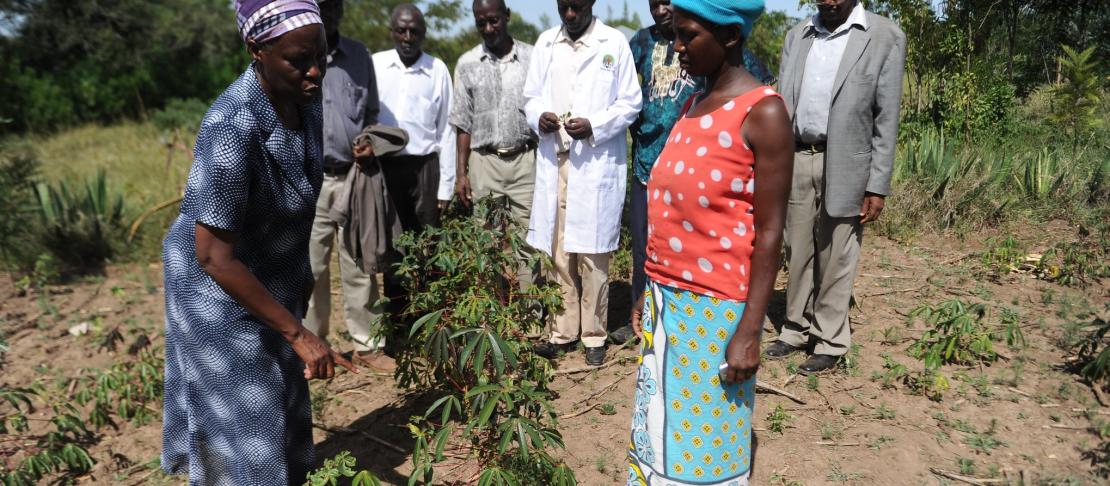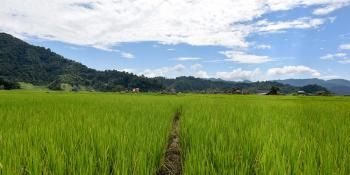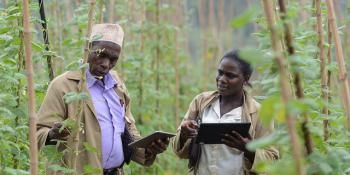Can videos, songs and drama be used to promote agricultural innovations?

by Vivian Atakos, Catherine Mungai, John Recha
Researchers and development practitioners at the recently concluded Agricultural Innovation Systems in Africa (AISA) workshop held in Nairobi, Kenya discussed a number of interesting topics, such as including gender into agriculture, the role of games in promoting innovations, differences between African and European agricultural systems and more.
Discussions wanted to reach an answer so to understand whether the approach being used to reach policymakers was the right one. Participants agreed on the need to make use of existing structures such as farmer associations rather than establishing new ones.
Coordination between the various research centers was seen as important. “It is common to find a policymaker with 50 different policy briefs from different researchers giving recommendations on the same approaches,” noted Sarah Mayanja from the International Potato Centre during the discussion.
Additionally, the need to bring and expose policymakers to key events and ensure they receive and contribute to building evidence on a sufficient scale about what currently works through action research was also proposed.
Further to this, participants saw the need to invest more in lobbying at national and international levels and target the right people to champion any recommendations arising from action research initiatives.
The involvement of youth in agricultural innovation systems
This discussion focused on how to make agriculture attractive to the youth in rural areas. Youth associations were identified as an ideal entry point to reach out to young people and encourage them to embrace agriculture as a business. In Africa, the challenge of land ownership discourages young people from taking up agriculture and the fact that it is labor intensive means they are attracted more to white collar jobs, which are hard to come by.
However, “youth involvement can be in any part of the agricultural value chain and not necessarily at the farm production level where they have to take a hoe and head to the farm,” noted Bell Okello, chair of Promoting Local Innovation in ecologically oriented agriculture (PROLINOVVA Kenya), and a co-organizer of the workshop. The youth need to be encouraged to study agricultural sciences and they should be facilitated to learn practically. Research institutions were seen as good avenues for mentoring the youth and encouraging them to engage in Agricultural Innovation
The role of fun and games in innovation systems
Can videos, songs and drama be used to promote agricultural innovations? Although participants agreed that fun improved the learning process, especially where difficult concepts where involved, a point of contention was where to draw the line between fun and learning. This is always hard. But games can play an important role in making sure people learn and get engaged with new ideas and techniques. It was agreed that an understanding of the cultural context was very crucial to the success of this approach.
Videos are also a powerful instrument to share knowledge, and allow people to capture their reality which in turn could inform policymakers, other farmers and development workers.
Learn more about 'Edutainment' in agriculture: Kenyan farmers use climate 'entertainment' for empowerment
Read about a powerful video-project in Nepal: Voicing women’s perceptions on climate change
Watch: East African pastoralists record their climate reality
Innovation platforms chartroom
This session entailed a moderated discussion with four experts and a key audience of about 10 AISA attendees who shared ideas on innovation platforms. It was proposed that the term innovation platform connoted a static entity. Such platforms evolve with time. A major challenge was how to assess the utility of the innovation platforms and whether they give value for money. Secondly, cases of research being disconnected from local problems can probably be addressed by working closely with stakeholders on the ground in a participatory approach. Thirdly, participants saw the need to link national platforms to the grassroots in order to enhance learning.
AISA was held from 29th to 31st May 2013 and brought together over 150 researchers and development practitioners. Co-organized by Joint learning in Innovation Systems in African Agriculture (JOLISAA), CCAFS and other partners, AISA was held as was part of the Week on Agricultural Innovation in Africa (WAIA).
- Read our blog on AISA ‘hot topics'.
- Get more information on AISA.
- Photos from the event
- Compilation of AISA workshop papers and posters
This story was put together by Vivian Atakos, Catherine Mungai, John Recha, all staff-members of CCAFS East Africa Regional Office. Get the latest updates from the region by following CCAFS East Africa on Twitter: Cgiarclimate_ea.


